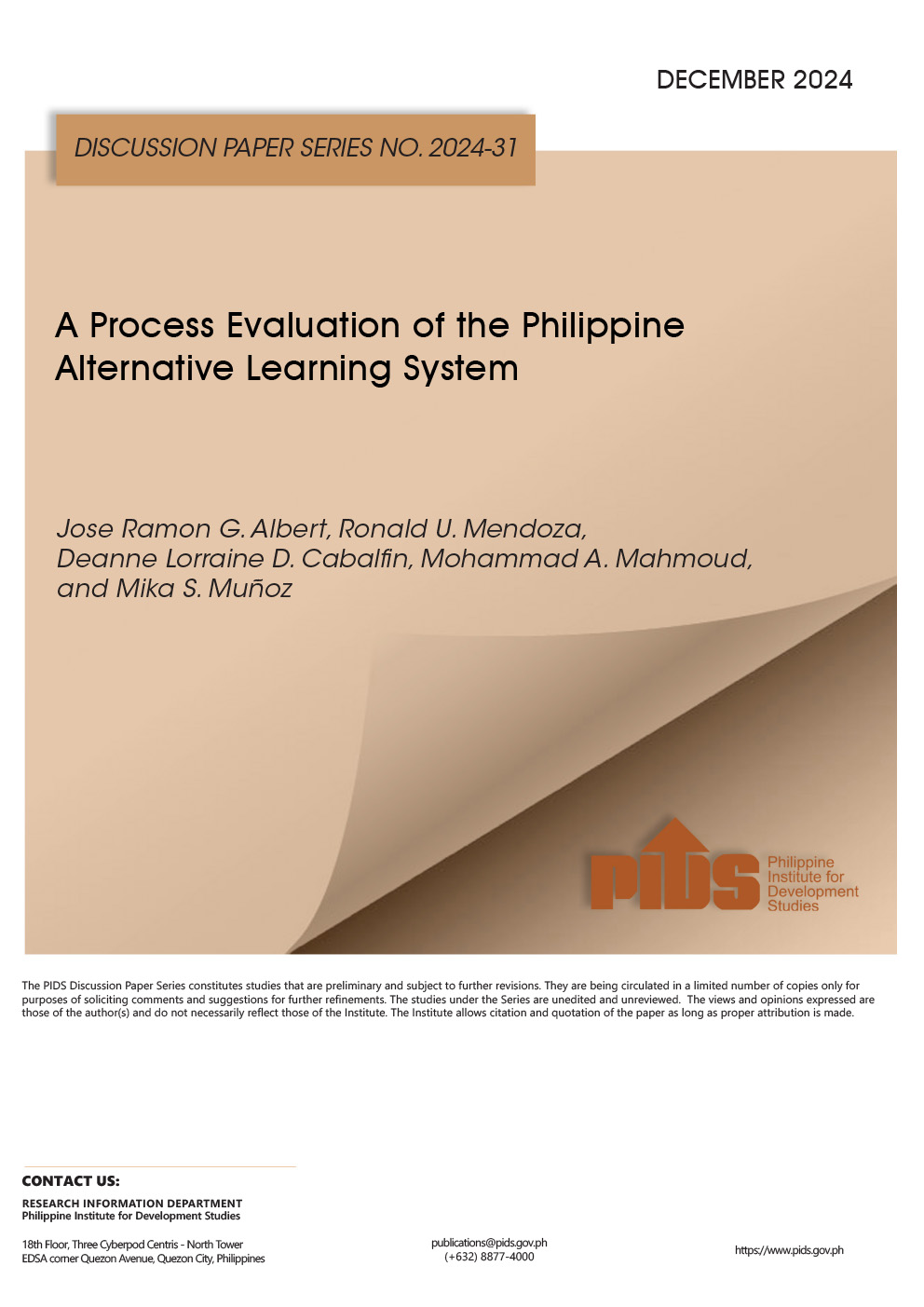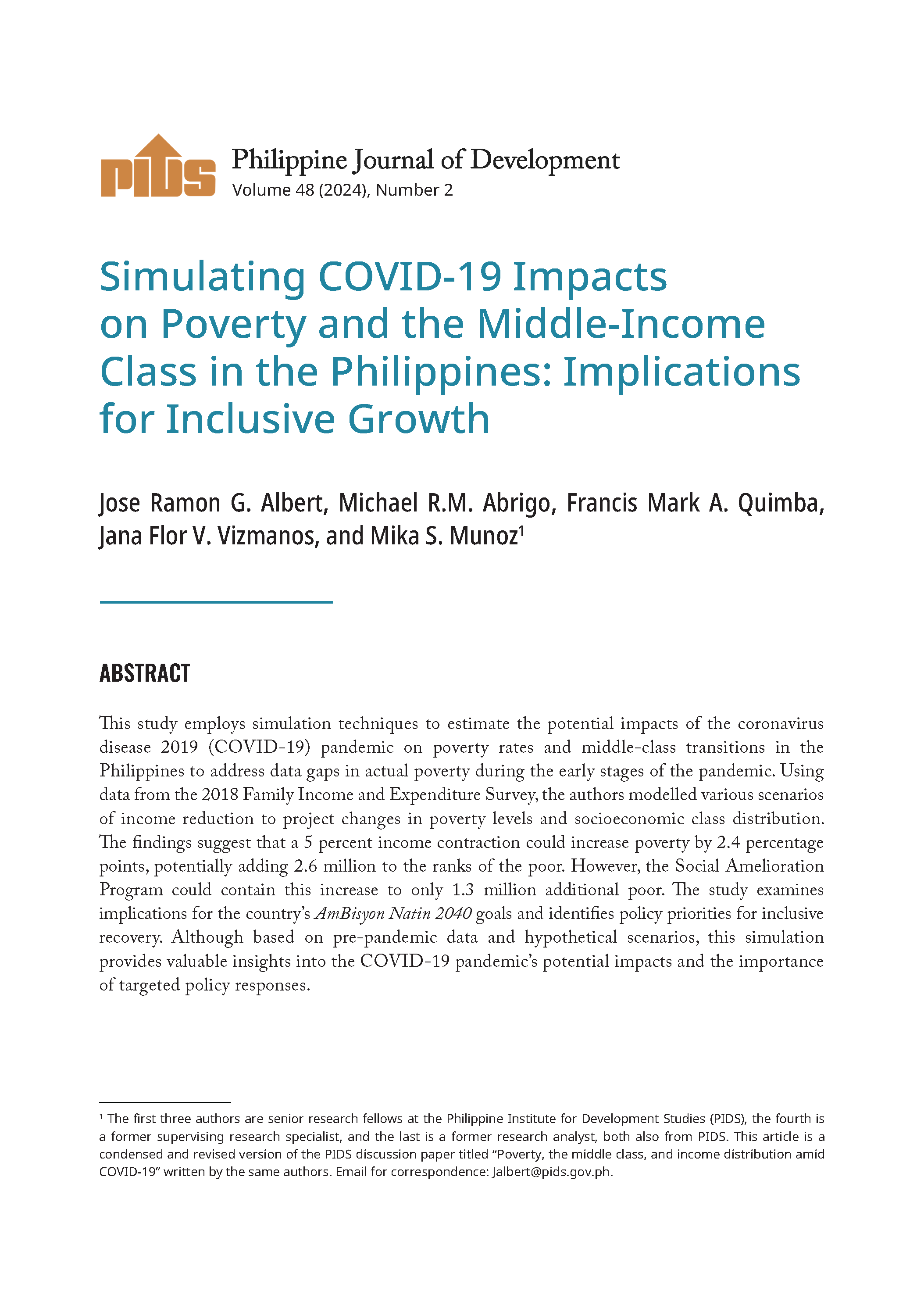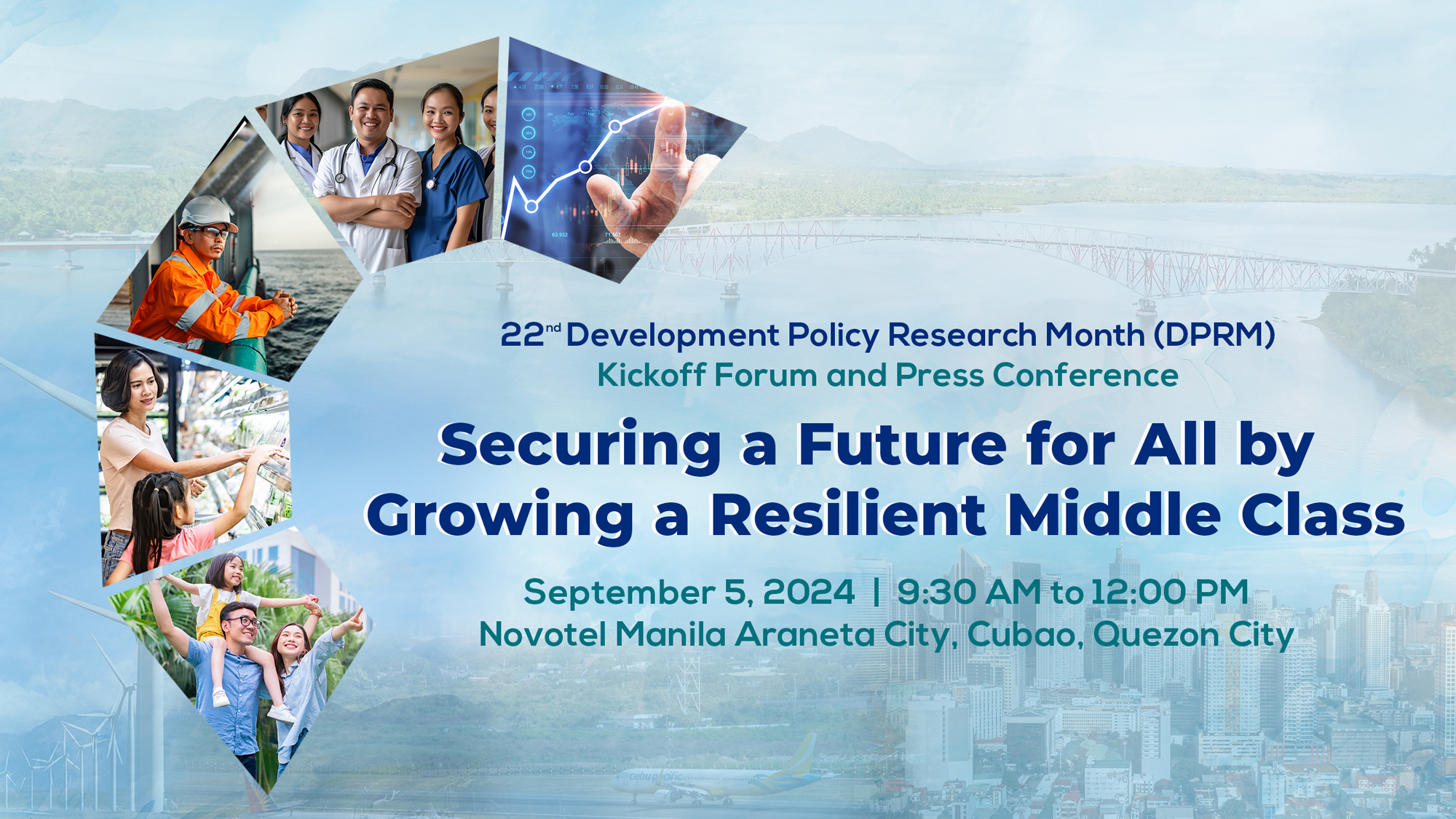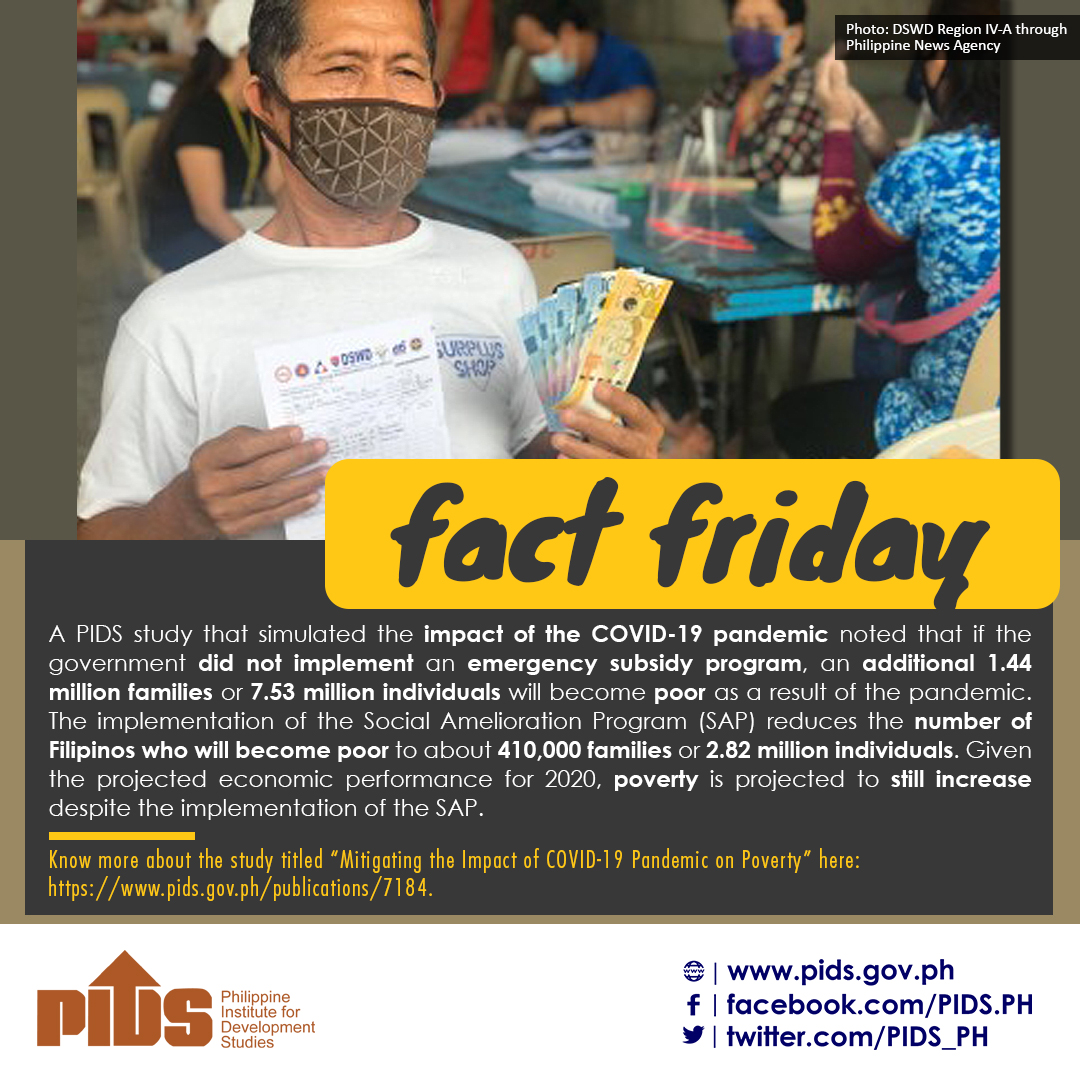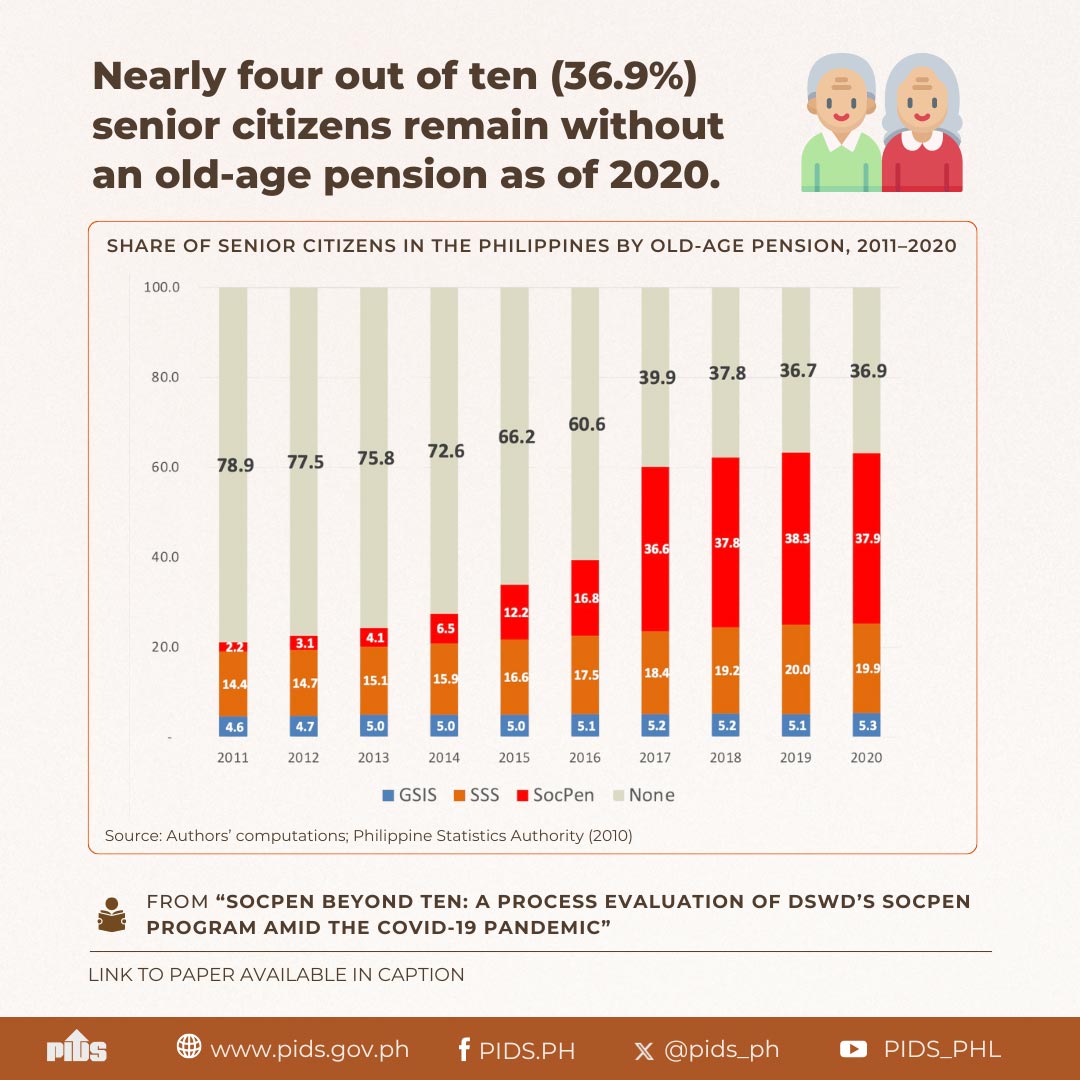Impact evaluation is critical to determine what strategies and interventions work and what needs to be changed or fined-tuned and how. There is strong debate over the relative merits of development programs and policy but little hard evidence of what works, which works best and why, and how we can scale up programs that work. Evaluation is needed to achieve this. Program evaluation creates accountability by providing a clear measure of the effect on recipients` lives. Lessons learned from evaluations help us design better programs` and do more to alleviate poverty.

Given the important role of impact evaluation in development planning and policymaking, PIDS and the Innovations for Poverty Action (IPA) Philippines conducted a seminar entitled `Impact Evaluation: Why It Matters`. This event was held on 10 September 2013, from 2:00 pm to 4:00 pm at the Romulo Hall of the NEDA sa Makati Bldg., Makati City.
IPA is a global nonprofit organization that specializes in designing and evaluating development programs in different parts of the world. It was founded in 2002 by Yale economist Dean Karlan. IPA partners with leading researchers at Harvard University, Massachusetts Institute of Technology, London School of Economics, and other top universities to design and evaluate research programs using randomized evaluations. This method provides the highest quality and most reliable answers to questions of what works and why.
The presentation focused on IPA`s experience in evaluating programs to improve children`s basic skills in reading and math in Ghana and India, increase agricultural productivity in Kenya, or determine what financial products benefit poor clients in the Philippines. The resource speaker was Ms. Jessica Kiessel, Director of Country Programs for IPA. She is responsible for overseeing the fulfilment of IPA`s Strategic Plan and provides management oversight to all of IPA`s Country Programs in Latin America, Asia, and Africa. She is also one of the lead researchers of the Teacher`s Community Assistants Initiative (TCAI) Evaluation, an impact evaluation of a government-run remedial education project in Ghana that seeks to improve basic skills in reading and math for children in underserved communities.
DOWNLOAD PRESENTATION




Given the important role of impact evaluation in development planning and policymaking, PIDS and the Innovations for Poverty Action (IPA) Philippines conducted a seminar entitled `Impact Evaluation: Why It Matters`. This event was held on 10 September 2013, from 2:00 pm to 4:00 pm at the Romulo Hall of the NEDA sa Makati Bldg., Makati City.
IPA is a global nonprofit organization that specializes in designing and evaluating development programs in different parts of the world. It was founded in 2002 by Yale economist Dean Karlan. IPA partners with leading researchers at Harvard University, Massachusetts Institute of Technology, London School of Economics, and other top universities to design and evaluate research programs using randomized evaluations. This method provides the highest quality and most reliable answers to questions of what works and why.
The presentation focused on IPA`s experience in evaluating programs to improve children`s basic skills in reading and math in Ghana and India, increase agricultural productivity in Kenya, or determine what financial products benefit poor clients in the Philippines. The resource speaker was Ms. Jessica Kiessel, Director of Country Programs for IPA. She is responsible for overseeing the fulfilment of IPA`s Strategic Plan and provides management oversight to all of IPA`s Country Programs in Latin America, Asia, and Africa. She is also one of the lead researchers of the Teacher`s Community Assistants Initiative (TCAI) Evaluation, an impact evaluation of a government-run remedial education project in Ghana that seeks to improve basic skills in reading and math for children in underserved communities.
DOWNLOAD PRESENTATION
- What are Randomized Evaluations Evaluations and Why Use Them?
(Powerpoint presentation by Ms. Jessica Kiesel, Director of Country Programs, Innovations for Poverty Action)



Gallery Images:

